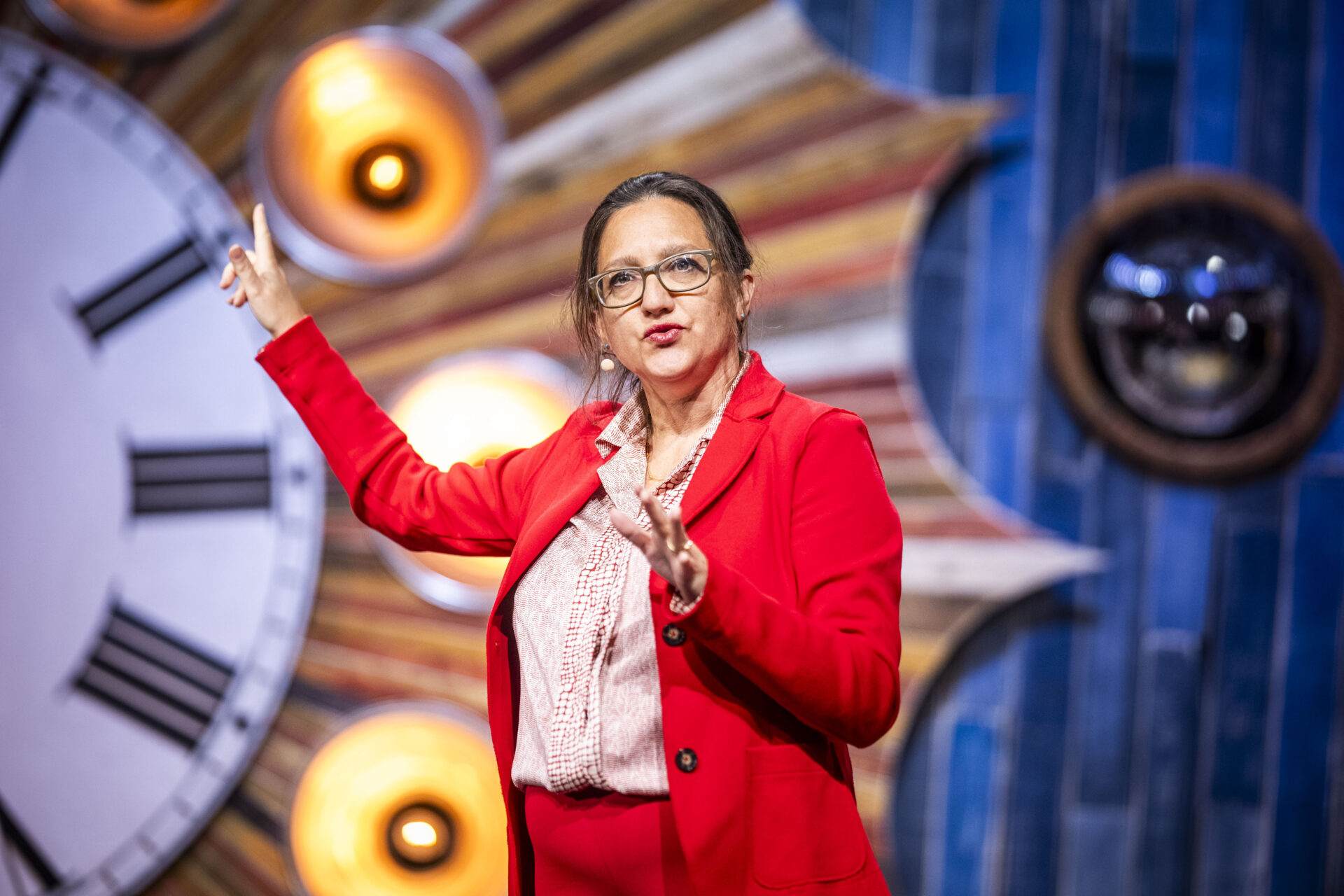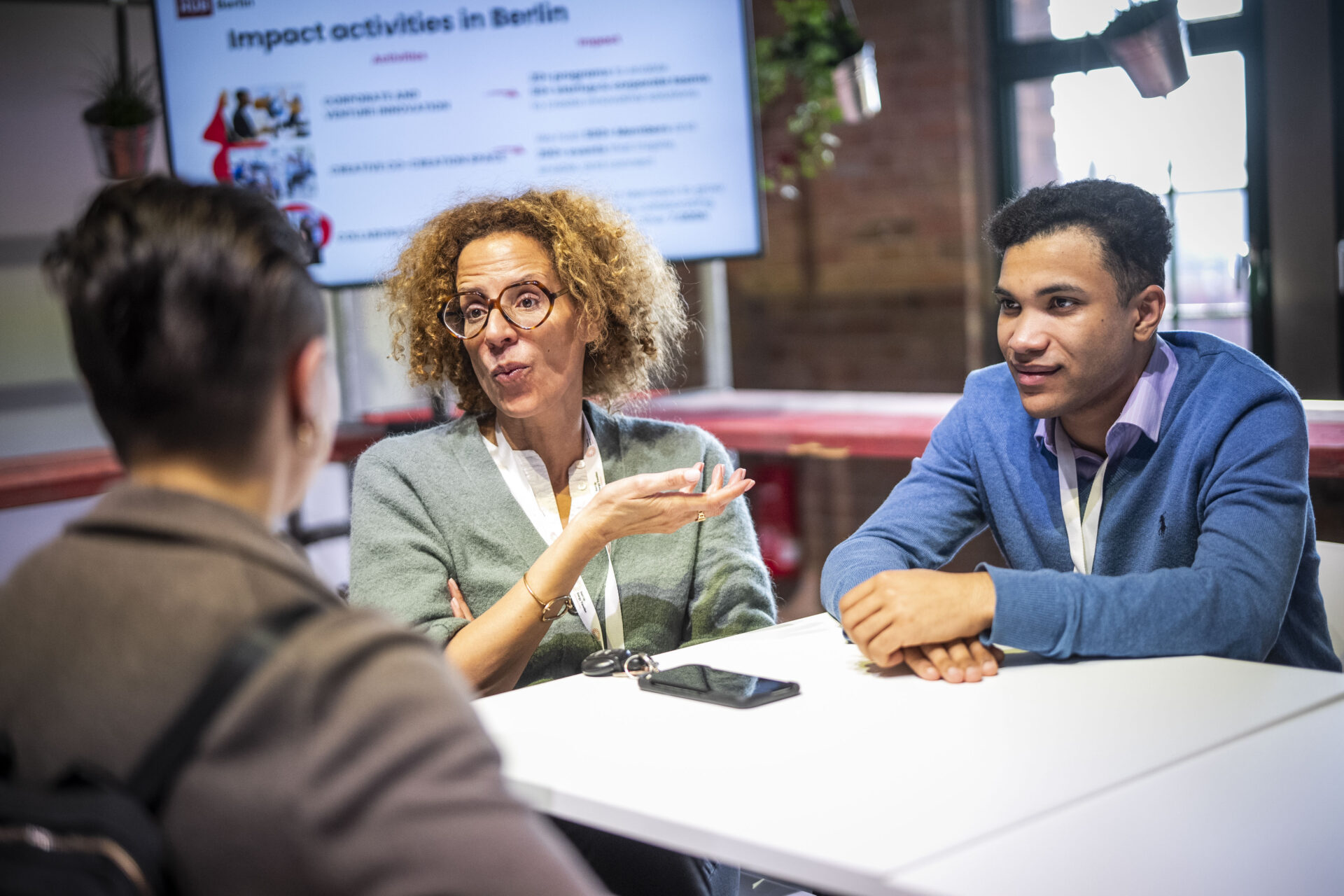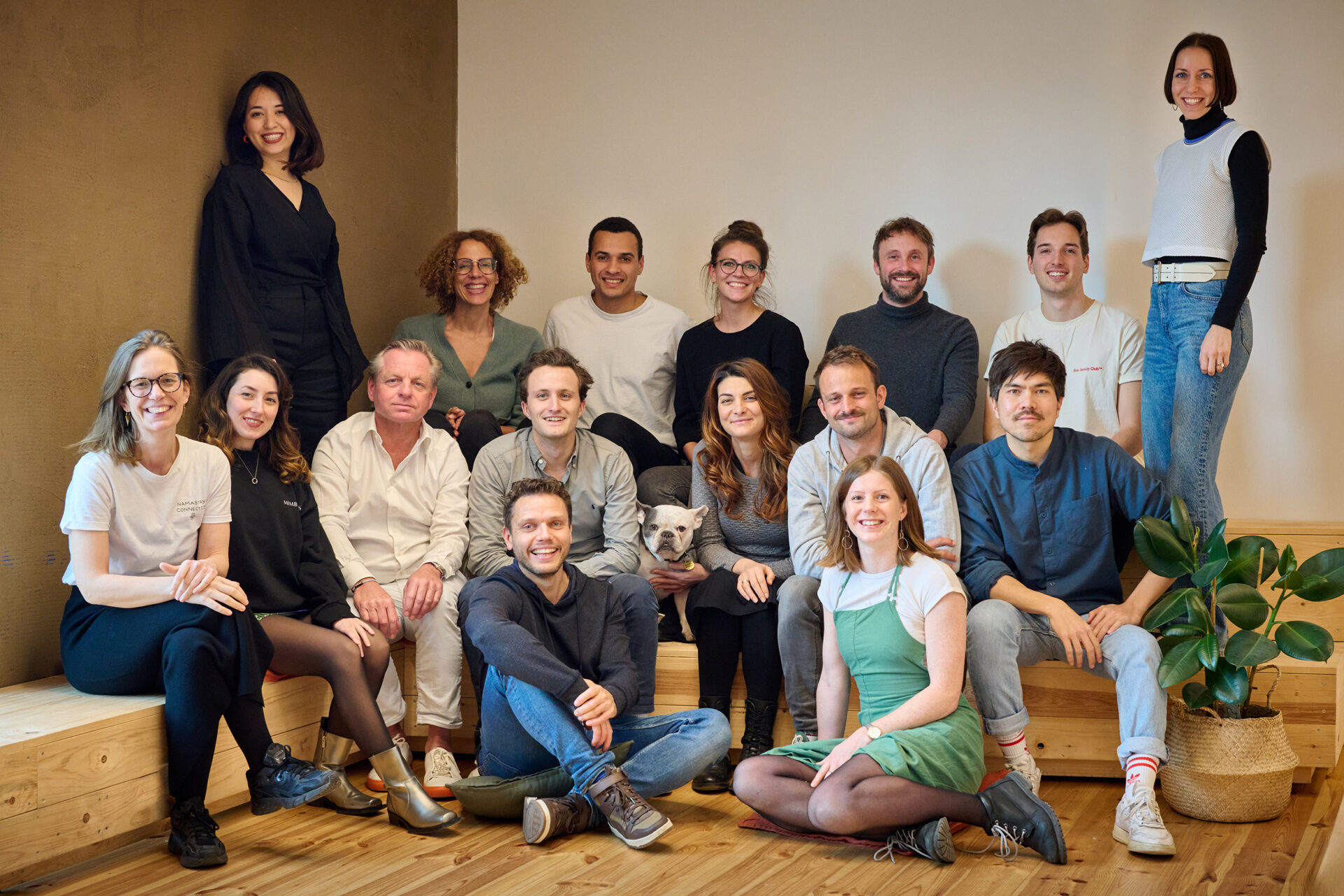A new age of climate tech
Climate tech must – and, according to our research, will – keep driving forward this year. Or else, we will fail to reach climate action targets or stay within planetary boundaries.
To give one telling example: More than 120 countries committed to triple their renewable energy capacity by 2030. Indeed, clean energy investments have risen by 40% since 2020. Moreover, 2023 saw a new record in renewables generation capacity of more than 500 gigawatts (GW). Yet, the share of coal, oil and natural gas in the global energy supply remains around 80% – as it has for decades.
The picture is the same across the climate tech sector. Regulators are being shocked into the realisation that they will not be able to live up to their promises unless they support a faster green transition.
These changemakers are finding their calling in impact investing and entrepreneurship. With smaller teams, a clear mission and more agile processes, startups are perfectly positioned to react to these trends and create the tech that the world and corporates need. However, their ambition is unlikely to translate into impact, if these startup teams are not supported by incubator programmes and strong partnerships to enable them to develop, prototype and implement their technologies.
Between 2013 and 2023, the proportion of climate tech deals in relation to all tech investments grew from 1.5% to 10%. This trend is set to speed up, especially in Europe. The European Commission is upping the pressure on Member States and private firms in their efforts to become the first climate-neutral continent under the European Green Deal.
This swing towards sustainability by the Commission, and consequently, investors and corporates, is also encouraging more entrepreneurs and innovators to take the leap with their green technologies.
In this article, we dive into the trends driving climate tech innovation and investment, the role of impact entrepreneurship, and the necessity of incubator programmes, such as the ones offered at Impact Hub Berlin, to nurture these technologies.
The trends driving climate tech innovation
Climate tech might not be new but this wave of climate tech innovation is different. New technological advancements, including in AI, rising regulatory pressure, a shift in focus to harder-to-abate sectors and recognition of the necessity of carbon offsetting alongside drastic emissions reductions, are shaping this current wave.
The rise of AI (and its implications)
It won’t be a surprise to anyone that Artificial Intelligence (AI) and its applications is set to be a widespread area of innovation and debate in the green tech ecosystem in 2024. Indeed, 2023 has been called “the year of AI”. The rapid rise in the use of ChatGPT in 2023, brought AI to everyone’s doorsteps. Nolonger was AI confined to the realms of sci-fi or computer geeks.
As of February 2024, ChatGPT had over 180.5 million monthly users. That’s equivalent to over one quarter of the European population – all of whom are now able to grasp what AI can do, even if they don’t yet understand how it works, or the full implications.
In climate tech, as in other sectors, AI has huge potential. ChatGPT, however – despite its popularity – is not likely to be at the centre of climate tech innovation. Rather than large language learning models, Sierra Peterson, climate tech investor and founder at Voyager VC, predicts that the focus will continue to shift towards more specific AI applications. From improving the energy efficiency of buildings to climate forecasting and reducing water waste, AI promises to bring unprecedented efficiencies to the production and operation of clean technologies, as well as making other systems and processes more sustainable.
That said, AI is no silver bullet. It comes with its own problems and carbon emissions, and founders as well as users, need to be aware of these implications. AI requires graphic processing units that tend to use four times as much power as cloud applications servers and require vast amounts of water for cooling.
This issue has not gone unnoticed and the European Commission are already exploring legislative measures for greener computing. Entrepreneurs entering this exciting field and planning to exploit the huge potential of AI need to have this in mind.
Corporates will have no choice but to innovate or collaborate
2024 will see the implementation of the Corporate Responsibility Sustainability Reporting Directive (CRSD), which we talked about in our blog on how ambitious legislation can pave the way for greater circularity. The Directive tightens the sustainability reporting requirements for SMEs and corporates.
40% of environmental claims in the EU are unsubstantiated, according to a 2020 study. With the CRSD, businesses will need to do a better job of collecting and reporting their data. Firms will also need to work harder to have a real impact and convince their customers of that impact. They’ll no longer be able to fabricate and propagate seemingly impressive but unsubstantiated claims.
Consumers are increasingly climate conscious – 64% of consumers worldwide reported a high level of concern about sustainability. While this doesn’t always correspond to a change in buying behaviour, consumers expect brands and corporates to share this concern. 72% of global consumers would like more information about how companies are making their products better for the environment. In our Sustainable Food Trends 2023 report, we frame this trend as the rise in consumer demand for ‘Impact on Display’.
Corporates need to take stock and act fast. They need to increase, measure and communicate their impact. Innovations in climate tech and collaborations with startups could help them.
Tough-to-decarbonise sectors are in the spotlight
So far, investments in climate tech have largely been funnelled towards sectors that present growth opportunities for founders and investors, with limited barriers. These include energy and mobility, which have also been the focus of the green transitions for governments internationally.
Now, however, after significant progress in these areas (though scale and implementation remains under question), attention is turning to those so-called hard-to-abate sectors like industry, construction, agriculture and the built environment. Hard-to-decarbonise but heavily polluting sectors like the built environment and industry are receiving an increasing share of investment.
The European Carbon Border Adjustment Mechanism (CBAM), can, at least in part, be accredited for encouraging this shift in attention. This ‘carbon tariff’ puts pressure on cement and other industries to turn around their carbon intensive products.
In 2024, construction companies will need to adapt to sustainability market trends, environmental regulations and consumer demand for greener buildings. Currently, the built environment sector is responsible for 37% of global emissions and the operation of buildings accounts for around 30% of global energy usage. The manufacturing of concrete alone accounts for 8% of CO₂ emissions annually.
Meeting the International Energy Agency’s Net Zero Emissions by 2050 Scenario will require rapid adaptation by the construction sector to equip all new buildings and 20% of existing buildings to be zero-carbon-ready by 2030.
Carbon removals and markets
Similar to AI, carbon removal technology is far from a silver bullet. However, scientists agree that it is an essential part of the solution, if we want to keep 1.5°C within reach. Direct air capture made a significant leap in 2023, tripling the market valuation.
However, it’s not only direct air capture gaining momentum. Startups across Europe are developing a plethora of biotechnologies that retain or draw carbon dioxide from the air, storing it in the land, natural materials or new products which can be used for construction or other purposes.
Along with the advancement of carbon removal and storage technologies, the carbon credits market is also maturing. After considerable (and in some cases, continued) controversy around the legitimacy of carbon offsetting projects, there is steep demand for transparency and evidence of the impact realised by these projects. If projects are able to meet this demand, it might be possible for buyers and sellers alike, to focus their efforts and resources on scientifically sound initiatives which help us meet our planetary and political goals.
The role of impact entrepreneurship
Entrepreneurs and startups will play a pivotal role in catalysing these trends and accelerating the transition to a greener world and more sustainable future. Investors know that these trends will change the world of tech forever. In 2023, climate tech (defined as the carbon and energy sector) overtook both fintech and software, in terms of capital raised – and this trend doesn’t look set to slow down either.
The EU’s sustainable finance taxonomy, which classifies economic activities by climate and environment objectives, is supporting this shift in investment. Some countries, such as Germany, are taking the EU-wide classification system and are launching their own taxonomy to encourage greener exports. “Projects in the green category will receive easier and more attractive cover conditions” when it comes to exports in the energy and transport sector, and key industries such as steel, aluminium, and some chemicals. This is attracting innovators and investors to take up the metaphorical green baton for climate action.
Startup teams are grasping the opportunities presented by current trends
That’s why, at the beginning of this year, we launched our new Impact Incubator programme for climate tech startups. This is part of our activities to promote and connect the Green Tech Ecosystem.
We were overwhelmed by the positive response from our partners and applicants. The need for tailored support to help early stage startups get off the ground and with that, accelerate the climate transition with their tech solutions, is clear.
Thank you to all our partners who helped us spread the word. Over 100 founding teams applied for the Impact Incubator, expressing a clear need for entrepreneurial support in product and business model development, go-to-market strategy, securing finance and more.
Across the board, we saw startups who are grasping the opportunities presented by current trends in climate tech innovation. Selecting just six teams was a challenge!
For this, we recruited the help of our expert jury, which included Nina Litman from the Green Generation Fund and Sebastian Feldmann from Lufthansa Innovation Hub, as well as our own Co-Founder and Managing Director, Leon Reiner. The jury assessed the startups on the their team strength, as well as their degree of innovation and impact, and the potential of their business model.
In March 2024, we welcomed the six selected teams to Impact Hub Berlin and our Impact Incubator. The 11 brilliant founders are already inspiring the community with their green tech know-how, while developing the skills and business model they need to succeed as impact entrepreneurs.
Our current Impact Incubator cohort is the perfect example of how impact entrepreneurs are catalysing the current trends in climate tech innovation. From innovative solutions and streamlining services in tough-to-decarbonise sectors, to substantiated carbon credit offerings and supporting corporates to meet their customer and employee expectations, our startups are
paving the way for the accelerated green transition that is needed to meet climate targets and save the planet.
Two of the teams – Enerwise and Scale Energy – are working on tech solutions to accelerate the transition to renewable energy on industrial and residential sites. ToyReloved and ZIRKULAAR all adopt circulatory into their solutions; from transforming textile waste into new materials with mycelium, to giving toys a second life and creating aesthetic, reusable exhibit stands. SmartPlant, meanwhile, has a vision to feed every Kiez from the Kiez, with their vertical farming technology.
- ZIRKULAAR Architecture creates zero-waste exhibition systems for a circular future.
- enerwise are decarbonising end-customers & SMEs.
- Scale Energy accelerate the energy transition through storage at scale.
- SmartPlant enables urban populations to be fed sustainably and efficiently.
- ToysReloved fuels the circular economy for children’s toys.
Find out more about the Impact Incubator and our first cohort here. If you’re interested in connecting with us or one of the startups, we are always happy to hear from potential partners. Reach out to impactincubator@impacthub.net


